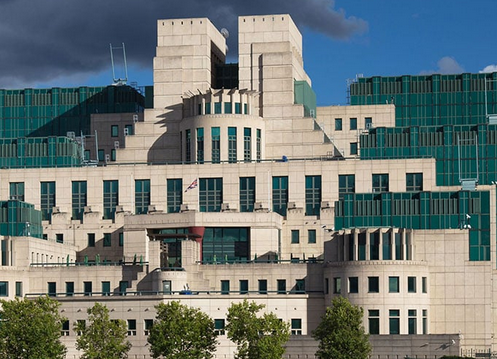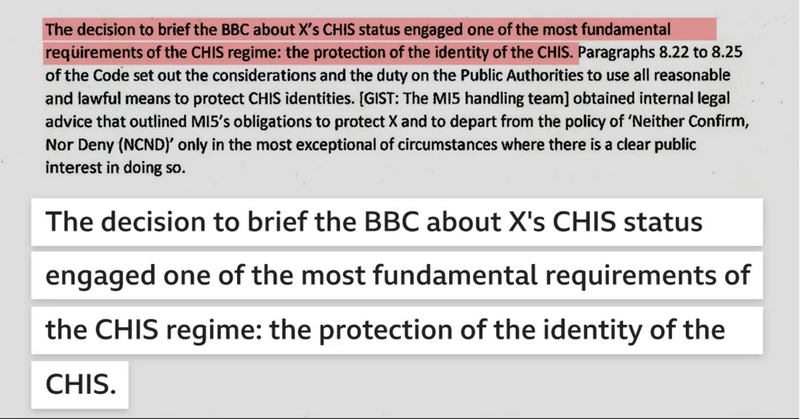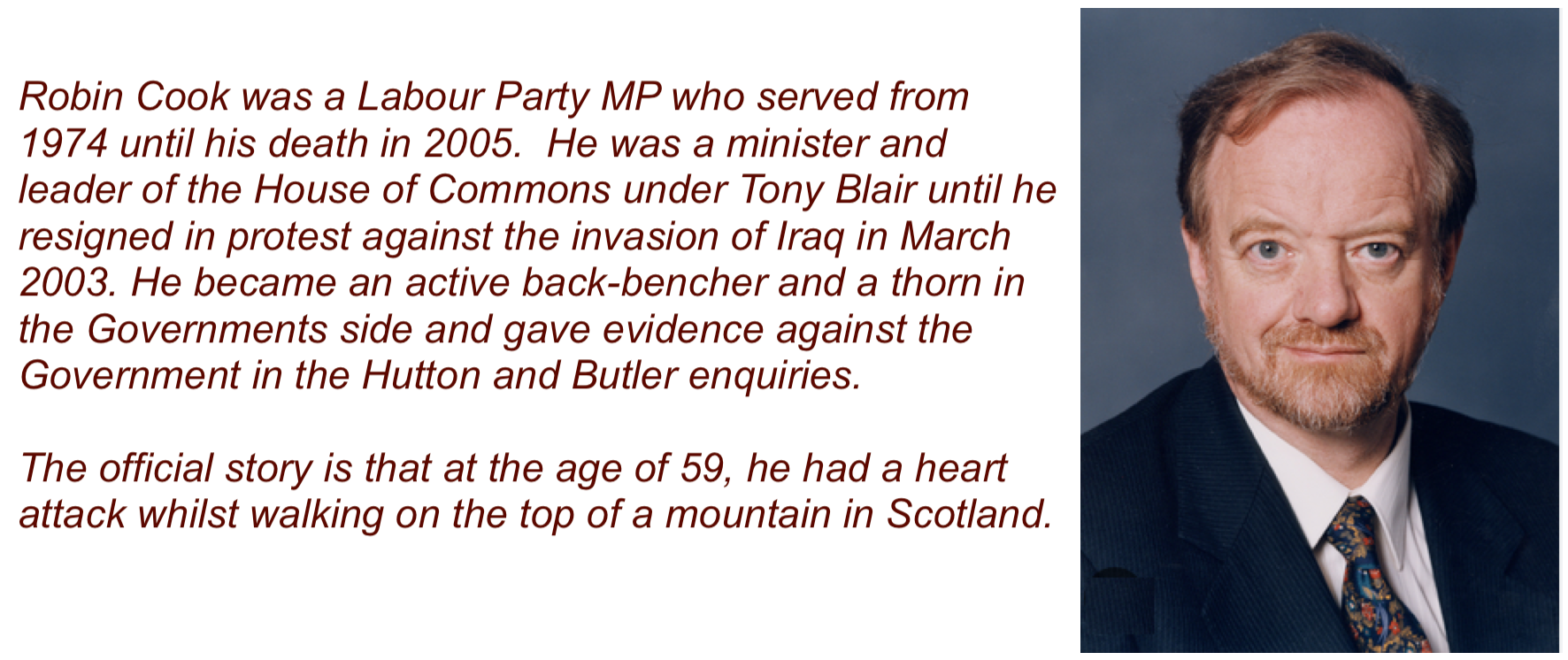M15: Who watches the watchers?

Last week the BBC revealed that the Investigatory Powers Commissioner’s Office (IPCO) had been misled by the UK Security Service (MI5) during its investigation into a violent neo-Nazi informant, known publicly as ‘Agent X’. The oversight body had initially drafted a report contradicting MI5’s claims made in court, but after receiving inaccurate information from the agency, IPCO rewrote its final version to align with MI5’s false narrative. MI5’s director general, Sir Ken McCallum, later issued an apology (Reuters).
This incident has drawn fresh attention to MI5’s troubling pattern of providing misleading information to courts and watchdogs, raising critical questions about accountability, oversight, and democratic transparency.
The Security Service, commonly known as MI5, is the UK’s domestic intelligence agency. It is based in a Orwellian building on the Thames in London and has an annual budget of £3.7 Billion. It claims it is responsible for protecting the nation from threats such as terrorism, espionage, cyber-attacks, and hostile state activities. Established under the Security Service Act 1989, MI5 works closely with other agencies including GCHQ, which monitors signals intelligence and cybersecurity, and MI6, the foreign intelligence agency, as well as with our domestic law enforcement agencies. It does not possess arrest powers itself.
While it is said that MI5 plays a vital role in national security, its activities are shrouded in secrecy. Its operations, including the recruitment and management of covert human intelligence sources (CHIS), are meant to be bound by legal and ethical constraints. These are overseen by bodies like IPCO and the Intelligence and Security Committee of Parliament (ISC). There is plenty of evidence, however, that it is a rogue agency operating outside of the law.
In 2022, IPCO began investigating MI5’s handling of a known neo-Nazi informant, Agent X, following a BBC investigation. Agent X, a covert human intelligence source (CHIS) run by MI5, has become one of the most alarming examples of the moral and legal hazards involved in Britain’s intelligence practices. Publicly known only as ‘X’ the agent was embedded within far-right extremist networks and maintained an official relationship with the Security Service. But while supposedly serving as a source of intelligence, X engaged in deeply abusive personal behaviour, including coercive control, intimidation, and threats against his former partner, a woman known publicly as ‘Beth’. What makes the case particularly shocking is that MI5 was not only aware of X’s violent tendencies but, according to Beth and BBC reporting, took active steps to protect him. In 2020, MI5 even attempted to dissuade journalists from publishing a story about X by revealing, in contradiction of its own ‘neither confirm nor deny’ (NCND) policy that he was indeed a serving agent.

This revelation contradicts statements MI5 later made under oath in multiple legal forums, including in a court case involving the BBC and two cases brought by Beth herself. Crucial information about X’s status was withheld from those proceedings, potentially undermining her legal claims and rights. Even more disturbingly, the Investigatory Powers Commissioner’s Office (IPCO), which opened an internal review in 2022 following the BBC exposé, was misled by MI5. According to the BBC, an early draft of IPCO’s report accurately noted that MI5 had made an ‘extraordinary departure from its secrecy policy to protect X, but this conclusion was removed after MI5 provided false information. Only after the BBC confronted IPCO with evidence did the agency acknowledge it had been deceived and confirmed that MI5 Director General Sir Ken McCallum had issued an apology.
The X case is not only a scandal in terms of personal misconduct and institutional cover-up, it also exposes the systemic fragility of intelligence oversight in the UK. When the agency charged with enforcing legal and ethical boundaries can be misled with impunity, and when individuals harmed by agents are left without access to justice, the democratic legitimacy of domestic intelligence work comes under serious threat. . This marks a direct deception of a key oversight body, which is tasked with ensuring MI5 operates within the law. . This is not the first time MI5 has misled oversight bodies or the courts:
- Stakeknife / Operation Kenova: MI5 was accused of withholding documents and delaying cooperation with the inquiry into Freddie Scappaticci, a British Army agent embedded in the IRA (The Times).
- Unlawful Surveillance Data Retention: The Investigatory Powers Tribunal ruled in 2023 that MI5 had unlawfully retained surveillance data, breaching legal safeguards for years (Privacy International).
- Binyam Mohamed Case: MI5 was found to have misled the Intelligence and Security Committee regarding its awareness of the torture of detainees rendered by the CIA (The Guardian).
MI5 is nominally held to account by IPCO, the ISC, and the courts. Yet these bodies are often reliant on the agency’s voluntary transparency. The ISC is appointed by the Prime Minister and lacks independent investigative power, while IPCO can only audit what MI5 chooses to disclose. Without automatic, full access to internal records, these watchdogs are inherently limited.
This imbalance raises a core democratic concern: how can a nation that claims to be governed by the rule of law allow a secretive agency to operate with impunity? MI5’s ability to deceive regulators and the judiciary not only erodes public trust but undermines the very institutions designed to protect civil liberties.
Effective oversight would require a fundamental shift: granting statutory independence to watchdogs, ensuring automatic access to operational data, introducing legal penalties for deception, and strengthening whistleblower protections.

In the UK, whistleblowers who challenge the intelligence establishment often face devastating consequences and some end up dead in mysterious circumstances:
- Gareth Williams (GCHQ/MI6): Found dead in 2010, locked inside a holdall in his London flat. A coroner ruled it was likely a "criminally mediated" death. Williams had access to highly classified intelligence on Russian operations, and MI6 was criticised for failing to report him missing for days. https://salvacybersec.medium.com/mystery-of-mi6-agent-gareth-williams-2139afb7f5ed
- Dr. David Kelly (MOD): A weapons inspector and whistleblower who exposed the government’s exaggeration of Iraq WMD claims. He was found dead in 2003 under suspicious circumstances. The government ruled it a suicide, but no full inquest was held and key medical records were sealed for 70 years. https://www.belfasttelegraph.co.uk/life/features/was-dr-david-kelly-murdered/28554273.html
- Sarah Tisdall (MOD): Leaked documents about US missile deployments to the Guardian in 1983. She was traced via court order and sentenced to six months in prison. Though not killed, her case illustrates the severe consequences for exposing state secrets, even in the public interest. https://www.theguardian.com/media/2021/may/11/in-defence-of-peter-preston-handling-of-the-sarah-tisdall-case
- Robin Cook (MP): Served as Foreign Secretary under Tony Blair 1997-2001. Resigned in protest over impending invasion of Iraq and said in Parliament that there was no evidence of weapons of mass destruction. Died on 2005 after having an ‘accident’ whilst walking on Ben Stack in Scotland. https://burningblogger.com/2015/08/19/will-there-ever-be-an-investigation-into-the-death-of-robin-cook/
- David Shayler 1997 (MI5): Shayler worked in MI5 from 1991 to 1996, handling vetting tasks and Middle Eastern terrorism, including the Libyan desk. In 1997 he leaked sensitive documents to The Mail on Sunday, alleging MI5's political surveillance and MI6's involvement in covert terrorism, including an assassination plot against Gaddafi. He fled to the Netherlands and France; arrested in France in 1998. After four months, the French court deemed the extradition political and refused. Voluntarily returned to the UK in 2000, was charged under the Official Secrets Act. Representing himself, he was convicted and sentenced to six months in prison but served only seven weeks, having already spent time in French custody https://www.theguardian.com/theguardian/from-the-archive-blog/2011/sep/20/phone-hacking-met-police-david-shayler

These cases reflect the dangers faced by individuals who dare to challenge secretive power structures. Whether through legal punishment, public smearing, or unexplained deaths, the cost of truth remains alarmingly high.
Though MI5 is not a ‘secret police’ in name, its power to monitor citizens, operate in secrecy, and influence judicial outcomes resembles the tactics of intelligence bodies in authoritarian states. The UK has a civilian police force accountable to the public, so the existence of a powerful, largely unaccountable security service operating in parallel must be questioned. While the UK rightly views itself as a democratic nation governed by the rule of law, it still maintains secretive domestic intelligence agencies such as MI5, which can be reasonably described, at least functionally, as a form of secret police. Unlike ordinary police forces, which operate with visible accountability mechanisms such as public oversight boards, legal transparency, and community engagement, MI5 operates largely in the shadows. It has no powers of arrest, but it carried out surveillance operation, runs covert agents, and makes recommendations that shape prosecutions and security classifications, often without judicial scrutiny or public knowledge.
Historically, the term ‘secret police’ evokes authoritarian regimes, from the Stasi in East Germany to the KGB in the Soviet Union: agencies that operated beyond law to suppress dissent. While MI5 does not function in an identical way, its lack of public accountability, its use of covert informants, and its alleged abuse of secrecy policies like ‘neither confirm nor deny’ raise serious questions. If agents are allowed to coerce individuals, mislead oversight bodies, or obstruct legal claims, as has been alleged in recent cases, then the distinction between a national security agency and a repressive secret police force becomes dangerously blurred.

Dr David Kelly, whistleblower on Government lies about weapons of mass destruction in Iraq, died in mysterious circumstances.
In a true democracy, security services must be subordinate to law and ethics, not the other way around. Yet much of MI5’s work remains exempt from Freedom of Information laws, shrouded in D-Notices. Its accountability is mostly limited to internal audits and reports seen only by a small group of vetted MPs on the Intelligence and Security Committee (ISC), who cannot freely disclose what they learn. Even the Investigatory Powers Commissioner’s Office (IPCO), created to enforce lawful oversight, can be misled, as was revealed in the BBC's reporting on agent X.
https://www.libertyhumanrights.org.uk/issue/legal-challenge-mi5-breaches-of-ipa/
While international threats do necessitate covert intelligence capabilities, they must exist within a framework that upholds transparency, legality, and human rights. Otherwise, MI5 risks becoming a shadow state actor: unseen, unchecked, and unaccountable.
The case of Agent X, and the broader history of MI5’s misconduct, expose a structural crisis in British democratic oversight. Watchdogs are misled, whistleblowers are silenced or dead, and courts are left blindfolded. Reform is not optional, it is essential. Without meaningful transparency and accountability, the very agency tasked with protecting national security becomes a threat to the democratic fabric it is meant to defend.
The world has gone mad. If you enjoyed reading this, please feel free to look at the rest of the blogs on www.TetleysTLDR.com. They're free to view, there's no paywall, they aren't monetised and I won't ask you to buy me a coffee. Also please free to share anything you find of interest, we only get the message out if people are aware of it. Just a leftie, standing in front of another leftie, asking to be read. All the best, Tetley

